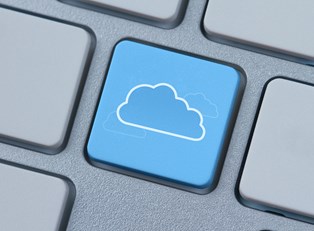Hacking has been a big part of this last year—first, the celebrity photo debacle and then the Sony pictures hack. During this time, people have naturally started worrying about the security of their own data. Since cloud storage is being used more and more each day, after these incidents many are beginning to question whether or not offsite data storage is safe.
Your Data Is Watched
Nearly everything we transfer, post, or access through the internet has the chance to be monitored by the government, which some might consider to be a breach of security. Unless you are doing something illegal or less-than-savory, this surveillance shouldn’t negatively affect your or come back to you in any way. So while it’s difficult to confidently say that you have “security” or “privacy” when it comes to cloud storage, users should know that such surveillance won’t mean that their private data will be made public in any way. Most data stored using cloud computing is encrypted (companies will disclose this in service agreements). The companies that manage this data have the encryption key, however. This shouldn’t frighten you, but you should know that if they wanted or needed to, these companies could decrypt and view your data.
You Can Increase Protection
Again, this “invasion of privacy” is only intended to be a security measure, so law abiding users shouldn’t fear the government or the company when it comes to security. What most users are concerned with are more malicious entities, like the aforementioned hackers. Another threat would be corruption or loss of the data due to an error in the service you are using. While these are possibilities, they are unlikely and measures can be taken to increase the security of your data.
Being smart with passwords is always a good first step. Re-using passwords can be a dangerous game: if someone is able to figure out one of your passwords, you’d better hope it isn’t your password for everything. The last thing you want is to lose access to your Facebook, Dropbox, and emails all in one fell swoop. If you intend to create a shared account (say, one for your business and those who work there), having a unique password is a must.
Back Up Your Data
If you don’t fear distribution of your information and are only looking to ensure it isn’t lost, consider backing up your data elsewhere. Keeping important files on a separate drive or even on various cloud services is a great way to ensure your files won’t be lost due to an unforeseen error.
So now you know. While the data we transfer using the cloud isn’t 100% private, it isn’t so easy to access that we should be fearful. As long as you use cloud technology in a safe and smart manner, you should be confident that your information will stay your own.




